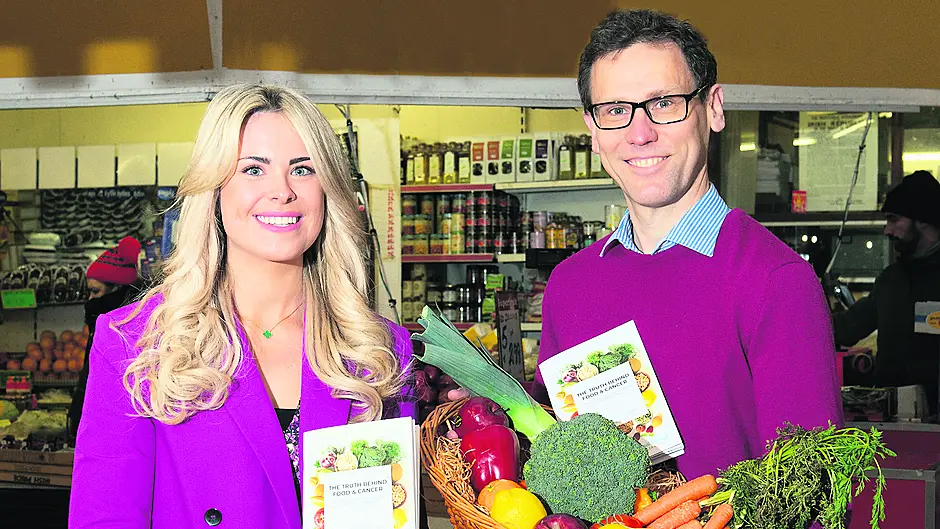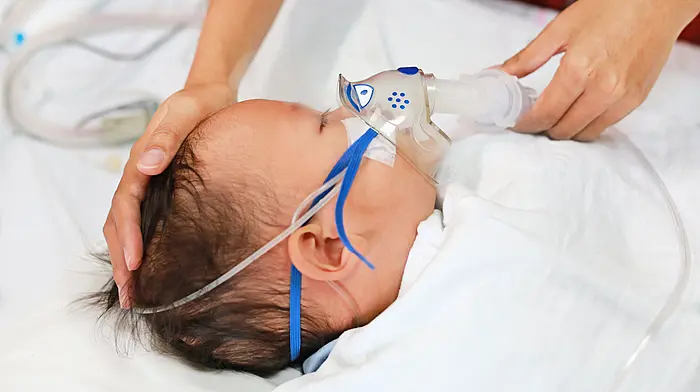SHOULD you avoid red meat, soya, alcohol, gluten, sugar, and artificial sweeteners? Do new trends like vitamin infusions work? Are special diets and organic foods beneficial in preventing and treating cancer?
A recent survey of over 1000 Irish cancer survivors reported more than half (56%) felt confused by nutrition information available.
Almost four in 10 (37%) were following, or had tried, alternative diets from restricting certain foods to herbal remedies, juicing or detoxes, and three in 10 (32%) reported avoiding specific foods like processed meat or dairy.
In response to the lack of scientific based information available to cancer patients and the general public interested in the link between diet and cancer, and the sometimes-dangerous alternative diets that people experiment with, Breakthrough Cancer Research and University College Cork have published a new booklet ‘The Truth Behind Food and Cancer’.
Written and compiled by senior cancer/oncology dietitians Dr. Aoife Ryan, UCC, and Clodagh Scannell RD, along with consultant medical oncologist Dr Derek Power and research nutritionist Michelle Hanna BSc, UCC, it provides accurate information on fad diets that have not yet been proven to be safe or effective in the prevention or treatment of cancer. It exposes the most common myths and misconceptions around the links between food and cancer, and offers simple explanations and advice based on medical evidence.
Other areas addressed include intermittent fasting, alkaline diets, juicing and detoxing, Gerson therapy, coffee enemas, apricot kernels & vitamin B17, and alternative treatment centres. The booklet also contains simple advice on eating well and top tips during chemotherapy and cancer treatment, along with recipes and nourishing meal suggestions.
The booklet strongly recommends that anyone who is undergoing cancer treatment should talk to their consultant and oncology team before making any changes to their diet or adding any supplements as it may interfere with their cancer treatment.
Clodagh Scannell said: ‘Research shows that almost 60% of Irish cancer survivors feel confused about messages relating to cancer and nutrition and 37% had tried an alternative dietary strategy that may be detrimental for their overall health. The aim of this resource is to provide people who have been diagnosed with cancer accurate and reliable information that is backed up by scientific evidence. I hope this resource will bring some clarity to anyone who has been diagnosed with cancer and reassure them that nutrition does not need to be over-complicated.’
Dr. Aoife Ryan, added: ‘People choose to follow complementary or alternative diets for a variety of reasons. They may hope to prevent cancer or improve their symptoms and reduce treatment side-effects. They may seek to boost their immune system. They may even hope to cure their disease or reduce the risk of recurrence. Some people surveyed say they follow specific diets to gain some control over their cancer journey. Thanks to generous funding from Breakthrough Cancer Research, we are now in a position to make scientific and evidence-based information about the link between cancer and food available to the public.’
Production of the booklet was supported by Breakthrough Cancer Research, a leading Irish medical research charity focused on cancer. Breakthrough ceo, Orla Dolan (daughter of the late Prof Gerry O’Sullivan from Caheragh), said: ‘Breakthrough is committed to funding research to improve cancer care and outcomes. We are passionate about providing evidence-based information for people with cancer and their families. When someone is going through a cancer diagnosis they can be faced with rafts of misinformation. After a diagnosis, patients and their families have many questions about foods – what to eat and what to avoid. We are proud to support publication of this new booklet, which aims to answer common questions patients have about diet cancer and tried to debunk some common myths.”
Prof Michaela Higgins, President of the Irish Society of Medical Oncology (ISMO) said: ‘Patients and their carers often seek advice on diet and nutrition while undergoing treatment for cancer. This new booklet provides sounds advice with support from scientific sources. It is very important to let your care team know if you are considering a change to your diet or taking supplements, as some of these may impact your treatment or cause harm. ISMO are happy to endorse this helpful, free resource.’
Elaine Tierney, cancer survivor, said: ‘No jargon, no nonsense, straight up, accessible advice from experts without an agenda . . . Invaluable for those of us going through and beyond active treatment. I know this booklet will also be so useful for people and carers looking for evidence-based advice to support and help loved ones diagnosed with cancer.’
• Free copies can be obtained in local hospitals and cancer support centres, or by contacting breakthroughcancerresearch.ie.










